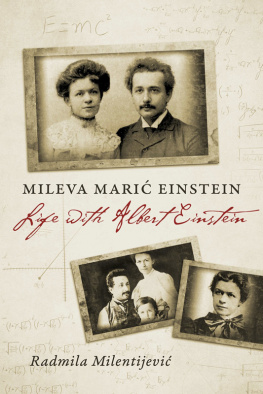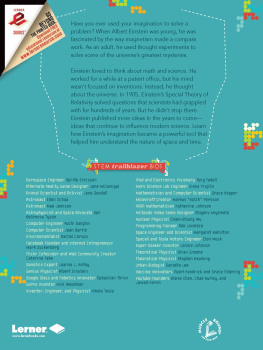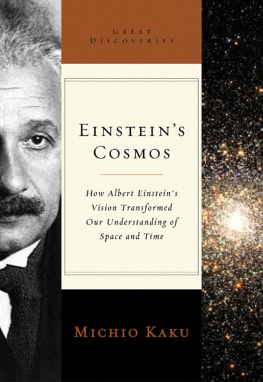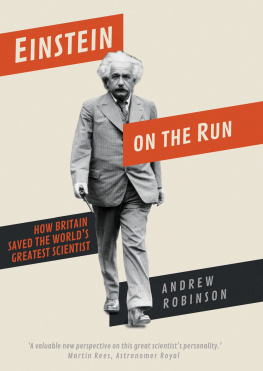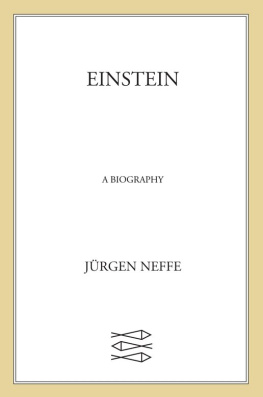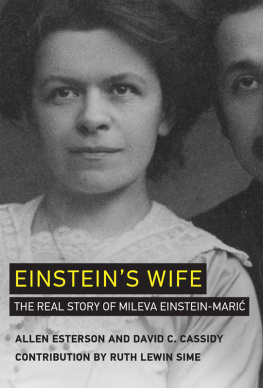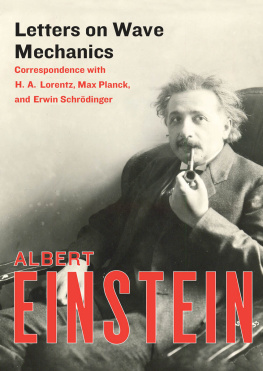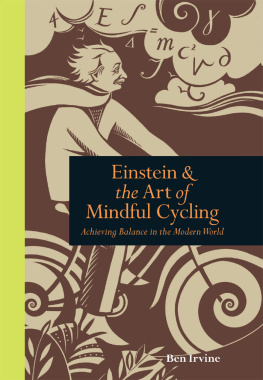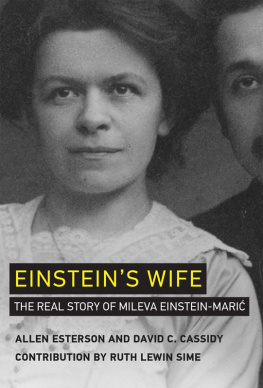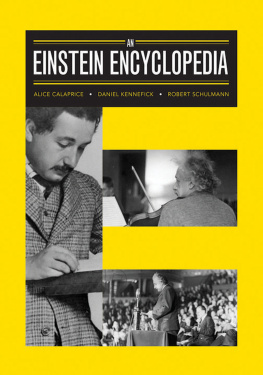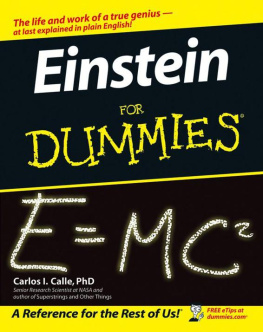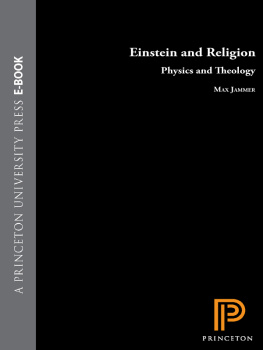Radmila Milentijević - Mileva Marić Einstein: Life with Albert Einstein
Here you can read online Radmila Milentijević - Mileva Marić Einstein: Life with Albert Einstein full text of the book (entire story) in english for free. Download pdf and epub, get meaning, cover and reviews about this ebook. year: 2015, publisher: BookBaby, genre: Non-fiction. Description of the work, (preface) as well as reviews are available. Best literature library LitArk.com created for fans of good reading and offers a wide selection of genres:
Romance novel
Science fiction
Adventure
Detective
Science
History
Home and family
Prose
Art
Politics
Computer
Non-fiction
Religion
Business
Children
Humor
Choose a favorite category and find really read worthwhile books. Enjoy immersion in the world of imagination, feel the emotions of the characters or learn something new for yourself, make an fascinating discovery.
- Book:Mileva Marić Einstein: Life with Albert Einstein
- Author:
- Publisher:BookBaby
- Genre:
- Year:2015
- Rating:4 / 5
- Favourites:Add to favourites
- Your mark:
Mileva Marić Einstein: Life with Albert Einstein: summary, description and annotation
We offer to read an annotation, description, summary or preface (depends on what the author of the book "Mileva Marić Einstein: Life with Albert Einstein" wrote himself). If you haven't found the necessary information about the book — write in the comments, we will try to find it.
History has not been kind to Mileva Mari Einstein, the first wife of Albert Einstein. Numerous biographies that have dealt with Einstein have contributed little to a deeper understanding of Mileva Mari and her role in Albert Einsteins life. This is the first in-depth study of Mileva Mari Einstein and her complex life-long relationship with Einstein. It attempts to explain why she failed to realize her potential in her own right. It offers new insights into Einsteins private life and character, and brings to light Milevas role in Einsteins personal and scientific development. This book is based on the correspondence between Mileva Mari and Albert Einstein. While Mileva Mari preserved most of Einsteins letters to her, most of her letters to him have been lost or destroyed, along with evidence of her contributions to Einsteins scientific achievements. Those letters that have survived resonate with a compelling voice. Consequently, the author has chosen to let Mileva Mari and Albert Einstein tell the story of their lives together in their own words as much as possible. It reveals a detailed dramatic picture of Einstein and Mileva, until now unknown to the world.
Mileva Mari was the only woman to enter the Section of Mathematics and Physics at the elite Polytechnic in Zurich in 1896. She was a person of extraordinary intelligence and talent. However, when Mileva met Albert Einstein that year, her fate became bound to his life and ambition. Raised in a patriarchal Serbian family, she was willing to sacrifice her own academic career and even her visibility to the dream of achieving something greater, together. Milevas decision to put her exceptional talents in the service of Einsteins career led to her invaluable contributions to his scientific achievements. Einstein wrote about her as an equal referring to our new studies, our investigations, our views, our theory, our paper, our work on relative motion. He also relied heavily on Mileva for emotional support at a critical time in his life. Without you I lack self-confidence, pleasure in work . . . without you my life is no life. Before their marriage, she bore Einstein a daughter, whom she gave up for adoption to protect Einsteins career, an act that cast a heavy shadow over the remainder of her life. Einstein married Mileva in defiance of strong opposition from his parents. She wasnt beautiful, she was older, she walked with a limp and she wasnt Jewish. You are ruining your future and blocking your path through life . . . That woman cannot gain entrance to a decent family, his mother wrote to him. Yet, Einstein was magnetically drawn to her independence, strength and formidable intellect during the most creative period of his entire life.
As Einsteins reputation and adulation surged so did his womanizing. Einsteins conduct in ending their marriage was so brutal that it dismayed even their closest friends and came perilously close to destroying Mileva. Although Einstein resisted, the divorce decree awarded all future Nobel Prize money to Mileva as her property. This was poetic justice, for it represented a symbolic measure of recognition for her contributions to Einsteins scientific achievements.
Despite their bitter divorce, they shared concern for their two sons, and maintained a steady, if often troubled, relationship until Milevas death. Einstein sought the comfort of her company, stayed at her Zurich apartment numerous times, and tried to provide help in his own way when she needed it. While sometimes touchingly considerate, Einstein was vindictive and brutal when challenged or hurt.
A true understanding of Einstein as both a man and a genius, is...
Radmila Milentijević: author's other books
Who wrote Mileva Marić Einstein: Life with Albert Einstein? Find out the surname, the name of the author of the book and a list of all author's works by series.

